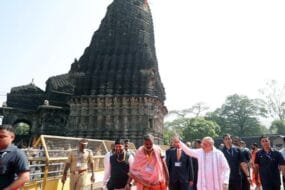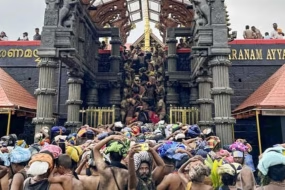- Home
- Religion & Spirituality
- Religious News
- Centre Argues in Supreme Court ...

On May 21, 2025, the Centre contested the petitioners’ claim before the Supreme Court that the creation of waqfs is an essential religious practice in Islam. The government submitted that charity, including waqf, is a voluntary act across all religions and not a mandatory religious duty.
Solicitor General Tushar Mehta, representing the Centre, argued that waqfs are essentially charitable endowments, and charity, whether under Islamic, Hindu, or Christian law, has never been considered an essential religious practice. He emphasized that a Muslim who does not create a waqf does not lose their religious identity.
Mehta further clarified that the Waqf (Amendment) Act of 2025 regulates only the secular and administrative functions of waqf institutions and does not interfere with core religious beliefs or practices. Articles 25 and 26 of the Constitution allow the state to regulate secular activities linked to religion, including financial and property management of religious endowments to ensure transparency.
Addressing the petitioners’ argument against the invalidation of the traditional ‘waqf by user’ practice by the new law, the Solicitor General noted that this form of waqf was a statutory recognition created by earlier laws and could be altered or removed by legislative action in response to changing societal needs.
The Centre highlighted the problem of unregistered waqfs and encroachments, which prompted demands from within the Muslim community for mandatory registration to improve governance. Registration of waqfs has been compulsory since 1923, and failure to comply has attracted penalties.
Responding to concerns about government oversight in waqf property management, Mehta rejected claims that government officers acting as adjudicators would be biased, stating that appeals against their decisions are available before specialized tribunals, High Courts, and the Supreme Court.
The government also defended the inclusion of non-Muslim members in State Waqf Boards and the Central Waqf Council as a move to ensure broader representation and transparency.
Mehta addressed fears regarding waqfs declared as protected monuments, assuring that religious activities would continue in such sites, and that regulation aims to prevent misuse, such as converting waqf properties for commercial shops.
Finally, the Solicitor General supported constitutional protections preventing the creation of waqfs on tribal or scheduled lands as provided under Section 3E of the 2025 Act.















